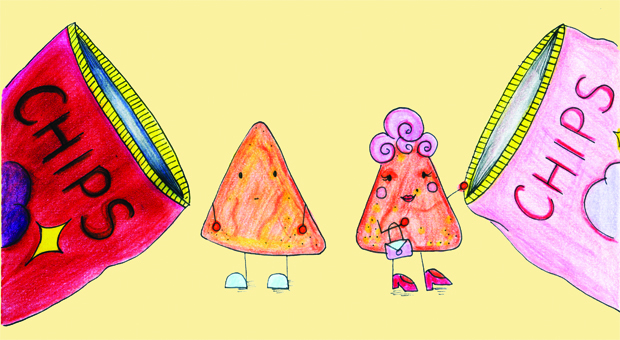
In a time where gender inequality is in sharp focus, it’s ridiculous of the CEO of Pepsi-Co, Indra Nooyi, to propose women need a different kind of chip to appeal to them.
In a Freakonomics interview that has since gone viral, Nooyi alluded to the possibility of Pepsi-Co, which owns Doritos, to create a chip for women.
According to Nooyi, women “don’t like to crunch too loudly in public. And they don’t lick their fingers generously and they don’t like to pour the little broken pieces and the flavor into their mouth.” As a result, she offered the possibility of creating a chip that’s “low-crunch,” leaves less residue on fingers and can fit in a purse specifically marketed to women.
Sadly enough, Nooyi is touching on something omnipresent in women’s lives: a pressure to be neater, quieter and inconspicuous in public. Nooyi didn’t invent this problem, but she isn’t advocating to solve it either.
Instead, she and Pepsi-Co proposed a chip that exploits this socialized insecurity. Instead of asking why women feel pressured to eat quietly and take up less space, they intended to find a way to cash-in on that problem.
There are ways to improve a product without relying on gender stereotypes. The issue people took with Indra, Doritos and Pepsi-Co wasn’t that they had a plan to make a quieter, cleaner chip. Rather, it was their plan to market this chip solely to women and perpetuate the unequal social pressures they already feel.
Corporations like Pepsi-Co have a long history of using gendered marketing to turn a profit. While men are pushed
hyper-masculine versions of regular products, women are given softer, pastel-coloured versions of the same thing. Present in Bic ‘For Her’ pens, razors and Dove for Men, corporations routinely use socialized insecurities to market their products.
What makes the Lady-Doritos situation even more concerning is that Indra Nooyi herself is a powerful woman pushing a sexist marketing scheme. Having women in powerful positions clearly isn’t going to completely solve sexism and misogyny, but holding those that attempt to exploit it accountable just might.
Through social media, the ‘Lady-Doritos’ story was shared, retweeted, joked about and even made into memes by thousands of people. It’s encouraging to know that while companies like Pepsi-Co can still have terrible ideas about gender stereotypes, they’re no longer accepted by the public. Dorito-gate may not have solved the world’s issues with gendered marketing, but it does demonstrate a turning tide in public opinion of it, which is an important beginning.
— Journal Editorial Board
Tags
Editorials, gendered marketing, sexism, Social media
All final editorial decisions are made by the Editor(s)-in-Chief and/or the Managing Editor. Authors should not be contacted, targeted, or harassed under any circumstances. If you have any grievances with this article, please direct your comments to journal_editors@ams.queensu.ca.
